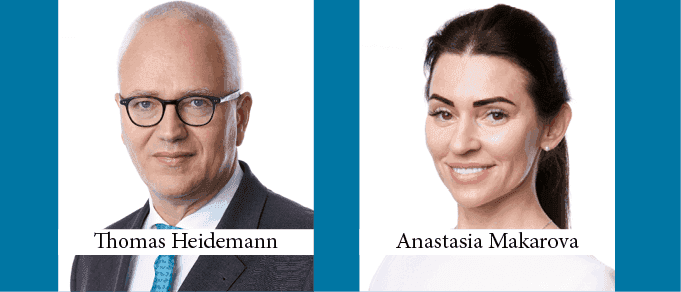Almost 20 years ago, the Russian Government decided to develop a renewable energy sector and promote renewable energy projects in the country. These efforts brought huge investments and complex technologies to the Russian renewable energy sector, which now features major global industry players like Vestas, Fortum, Siemens, Enel, and Lagerwey.
The legal framework for this progress was set up in 2009, when the Russian Government approved the State Policy on Energy Efficiency (the “Policy”). It subsequently adopted the National Strategy for the Development of Renewable Energy, which became the basis for adopting more specific regulations.
By establishing this new legal regime, Russia replaced the “premium scheme,” in which the government had proposed to motivate industry players through premium payments, with the “capacity supply scheme,” involving a pre-determined price paid by consumers to the capacity supplier. This price is based on the beneficial fixed tariff, which the supplier, subject to meeting the Russian localization requirements, can use for 15 years. This structure guarantees the return of the investment used for building and operating a renewable power generating facility within a certain margin (12-14%).
This legal regime covers photovoltaic, wind, small-sized hydro, and waste treatment power sources generating more than 5MW of renewable power. The capacity volumes are offered to potential suppliers at annual tenders, which are conducted for each type of power generating facility.
As mentioned above, the localization rules, aimed at expanding local production in the renewables sector, significantly impact the economics of renewable energy projects. These rules determine a certain percentage of the elements and components (or spare parts) of the energy generating facility that are to be produced in Russia. The bidder shall commit in its bid application to a certain degree of localization, and if it fails to reach that level, the price for its power supply will be significantly lower.
The winners of each tender must then conclude long-term energy supply agreements (CSAs), under which a capacity supplier must build its renewable energy generating facility within a certain timeframe and supply capacity into the Russian power system, where large industrial consumers will buy it. The mandatory CSA form is established by law and cannot be amended.
Specific timeframes for executing the renewable energy projects are determined by the deadlines indicated in the respective CSAs. A failure to meet a deadline will attract a contractual penalty that will automatically be debited from the supplier’s account.
Potential suppliers usually create joint ventures involving global Russian corporations, foreign investors or technology owners, and local companies. The last of these are responsible for handling local issues during the development of the project. The use of such JV structures enables the creation of a strong team that can effectively resolve all issues that could arise during the implementation of the CSAs.
The existing structure is based on the Policy, which runs till 2024. When all the 2019 tenders are concluded, 95% of the targeted power generation capacity in the solar and wind sectors will be awarded to the tender winners. Therefore, down the road, this market is expected to receive new regulations to govern its activities beyond 2024.
The current framework has generated much controversy. Large industrial consumers have objected to the extension of the Policy, instead calling for the adoption of alternative measures for supporting the renewable energy sector. The main reasons for their dissatisfaction are the price of the power capacity and the increase in the costs of implementing the Policy. However, from the other side, some key investors in the Russian renewable energy sector (such as Rusnano and Renova) have requested that the Policy be extended until 2035. These companies believe the Russian renewable energy sector is still too young to function under the general competitive rules of the Russian energy market applicable to the other sectors.
While the outcome of this dispute is unclear, the Market Council, which is the sector regulator, is working on a cross-solution based on the concept of Russian green certificates aimed at supplementing the existing structure. By selling these green certificates, consumers could reduce their total amount of payments for energy under the current support mechanisms, while for the power suppliers, the green certificates could be a source of return on their investments.
Consequently, the Russian renwable energy market awaits future changes in the legal regime, which will provide a new impulse to further develop the industry.
By Thomas Heidemann, Partner, and Anastasia Makarova, Senior Associate, CMS Russia
This Article was originally published in Issue 6.4 of the CEE Legal Matters Magazine. If you would like to receive a hard copy of the magazine, you can subscribe here.


